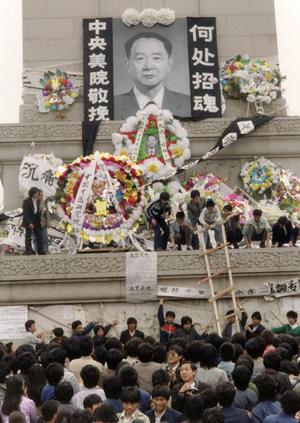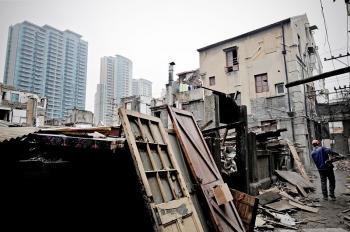The Chinese Communist Party (CCP) will officially commemorate former Chairman Hu Yaobang’s birthday with activities at the People's Hall, on November 20, 2005, according to reports from Reuters and Hong Kong media. Some members of the Political Bureau Standing Committee will attend the ceremony and CCTV will report the event. Similar ceremonies will be held in Hunan Province, where he was born, and in Jiangxi Province, where he was buried. Information related to these events has also been reported in China.
This will be the CCP's first official recognition of Hu Yaobang since his death. Viewing the trend of mass withdrawals from the CCP as a crisis, it was learned that factions inside the CCP agreed that they should give “save the CCP” the highest priority. In order to win the people's trust as well as international acceptance for itself, the CCP hopes to stave off its demise by “commemorating Hu Yaobang.”
Hu's death was the direct cause of the June 4th Tiananmen Square student massacre 16 years ago. No official memorial events have been held since he died in 1989 and the official media rarely mention his name.
Memorials in recognition of the date of someone's birth or death are often signs of political trends within the CCP. The CCP was recently saying that it should learn from North Korea and Cuba regarding ideology, so why would it all of a sudden plan to commemorate Hu, an advocate of political reform?
An expert on China, Shi Zangshan, believes this strategy is being used because the CCP is now encountering an unprecedented crisis. After 50 years of control, over 4 million people have recently resigned from the CCP, which has directly impacted the Party's sense of control in China. In order to save itself, Mr. Shi thinks it that the CCP could even provide redress for the Tiananmen Massacre so as to win the people’s trust and prolong its regime. So commemorating Hu Yaobang could be a prelude to compensating for the Massacre.
CCP Expert At Fooling People
Senior reporter Zhang Weiguo pointed out in one of his articles that “the CCP is an expert at controlling news reports and it knows all the tricks to control the media. Though it created countless frame-ups and false accusations in past political movements, the CCP still managed to make the victims feel deeply grateful to it; no matter how chaotic it made things, the Party turned the chaos into propaganda that praised itself and its leaders; although the CCP has killed more of its own citizens than the number of people who died in the two world wars, the Party claims that it is eternally great, glorious, and correct. Such shameless propaganda is an important part of the CCP's control.”
Reuters quoted insiders as saying that although the CCP does not plan to immediately make amends for the 1989 Tiananmen Square Massacre, it may do so in the near future in order to maintain control. Does this mean that the CCP will really put down its “butcher's knife” and truly promote democracy?
Renowned political commentator Ling Feng pointed out in an article that, “the Massacre is only one of the blunders made by the CCP and that there are many, many other cases that should also be redressed. The root cause of all of these disasters is the single party dictatorship. As long as the Party's dictatorship exists, there will be new accusations against the innocent in the future, even if the Massacre is redressed.”
Hu Yaobang and the Tiananmen Square Massacre





